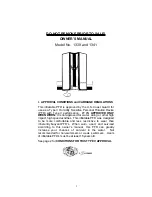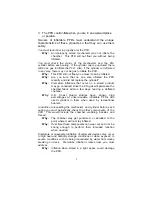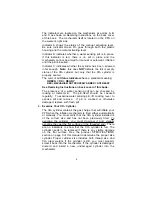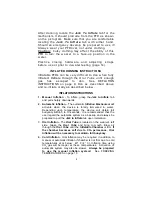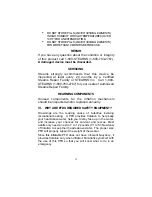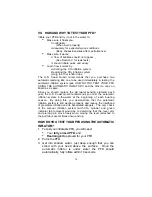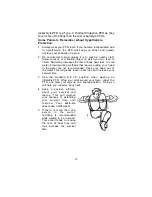
10
(See page 13 for repair station locations/information.) In an
emergency situation, hold thumb over the valve if it will not
close.
Refer to the back inside cover for REPACKING
INSTRUCTIONS.
FREEZING TEMPERATURES
At or below 40° F (4° C) automatic activation and inflation time
with CO
2
gas will be longer. Wearing a partially inflated PFD in
these conditions will provide some initial buoyancy while the
PFD fully inflates.
Caution:
Do not fully inflate orally and then inflate with the
CO
2
cylinder. Repeated CO
2
inflation after oral inflation will
damage the PFD to the point that it will not hold air or float.
O THE R USE G UIDE LI NE S
1. Always wear your PFD when underway unless you are inside
a cabin.
2. If you need to jump from any height always fold arms over
your chest to keep the PFD in place when entering the water.
3. Avoid all unnecessary activities that will be abrasive to the
device.
4. Use extreme caution around sharp objects.
5. Avoid unnecessary exposure to the sunlight. See GENERAL
PRODUCT LIFE EXPECTANCY on page 11.
6. CO
2
gas from the cylinder will permeate through the chamber
fabric over time. If you are in the water for a long time, it may
be necessary to top off the inflatable orally, by blowing air in
through the oral tube.
7. Inflatable PFDs are not designed for activities in which the
wearer expects to encounter impact with the water at a high
speed such as water skiing, riding personal water craft, etc.
8. Inflatable PFDs are not designed for white water activities.
9. For Inflatable PFDs that have a manual-auto inflator, dropping
the PFD into the water or exposing the inflation system to
unnecessary water spray, will result in an inadvertent inflation.

